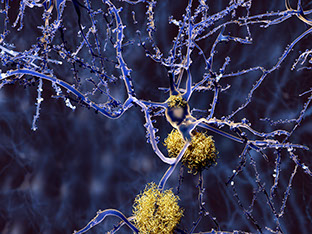
Neurodegenerative diseases have risen to the forefront of public health concern in recent years. Alzheimer's disease is now the 7th leading cause of death among both Canadians (Statistics Canada) and Americans (CDC).
Many landmark scientific advances are being made to help understand these disease progressions, but we believe that there is a related area worth intense investigation - understanding disparate mechanisms that trigger growth and survival in neurons.
Cells can be "told" to resist death, to grow, and to proliferate even in the presence of external stresses. This has been observed when naturally produced neurotrophins (a family of proteins made in the body) are present.
Excitingly, a collection of small molecules from nature have exhibited similar effects to neurotrophins when they are applied to cells. These small molecules are therefore termed "neurotrophic natural products." Interestingly, while there are over 100 different neurotrophic natural products, there is very little information about how they elicit these neurotrophic responses.
It is known, however, that many of them do not behave the same way that neurotrophin proteins do (in other words, they act through a different signaling process).
We believe that studying these small molecules, and how cells respond to these molecules, will allow us to identify mechanisms which cause cells to resist apoptosis (cell death).
If we can control the signal to resist cell death, then perhaps we can develop new therapies that will slow or halt neurodegenerative disease progression.

Artist's Rendition of a Neuron (blue) with Amyloid Plaques (yellow)
Amyloid Plaques are a buildup of toxic proteins. These protein plaques place significant stress on the neuron and often contribute to neuronal cell death.
Each neurodegenerative disease is characterized by a different form of stress which is placed on the neuronal cell, triggering apoptosis.
Next